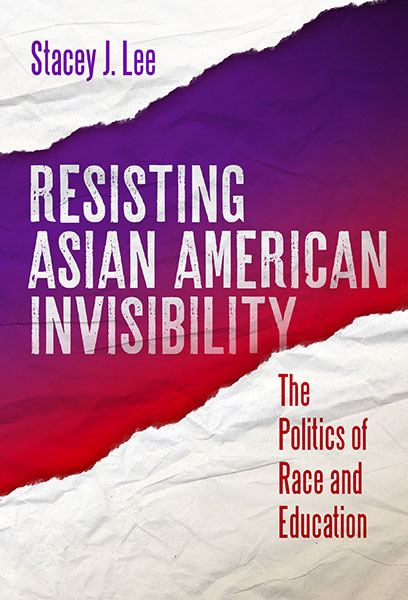Professors: Request an Exam Copy
Print copies available for US orders only. For orders outside the US, see our international distributors.
Publication Date: September 23, 2022
Pages: 144

Resisting Asian American Invisibility highlights one group’s struggle for educational justice. Based on in-depth ethnographic research in formal and informal educational spaces, this book argues that Hmong American youth are rendered invisible by dominant racial discourses and current educational policies and practices. The book illustrates the way that Hmong American students are erased by the Black and White racial paradigm and the Asian American pan-ethnic category that perpetuates the model minority stereotype. Furthermore, Lee and a team of Southeast Asian American graduate student researchers explore how current educational policies around English learners marginalize Hmong youth. Far from being passive or silent victims, Hmong American communities actively resist their invisibility through various forms of educational advocacy and community-based education. In the tradition of critical ethnography, the author and her research team also look at what these individual and local stories expose about larger social forces, norms, and institutions.
Book Features:
Stacey J. Lee is the Frederick Erickson Wisconsin Alumni Research Foundation (WARF) Professor of Educational Policy Studies at the University of Wisconsin–Madison. She is the author of Unraveling the "Model Minority" Stereotype: Listening to Asian American Youth (2nd ed.) and Up Against Whiteness: Race, School, and Immigrant Youth.
“In reading this book, school leaders will be reminded of the crucial connections between educational entities and social community groups and the need to foster them.”
—NASSP Principal Leadership
“In addition to identifying the racial inequalities Hmong Americans face, Lee examines the social justice strategies and educational reforms pursued by the high school, middle-class Hmong community leaders, and a local community organization.”
—CHOICE
“In this follow-up to Up Against Whiteness, Stacey Lee and colleagues examine the ways Hmong youth continue to be marginalized by policies and practices within and outside of schools, as they simultaneously examine the ways in which Hmong American leaders, parents, and youth understand, negotiate, and challenge invisibility and hyper-visibility through educational advocacy and community-based education. A must-read for all those interested in bringing to light the ongoing relations among groups to structures of power, social policies, and large sociopolitical formations.”
—Lois Weis, State University of New York Distinguished Professor, University at Buffalo
“Stacey Lee offers us another master class on respectful research with(in) Hmong communities and among Hmong youth by listening carefully, observing closely, and maintaining a learning stance that assumes participants’ ‘full humanity.’ Lee’s work continues to educate us about the multiplicity of Asian Americans, and to further complicate Hmong American identity, typically ‘unseen, unknown, unrecognized,’ yet far from monolithic; Hmong Americans are a richly differentiated community that actively resists racism and seeks social uplift, even while members follow varied pathways to achieve shared aspirations.”
—A. Lin Goodwin, Thomas More Brennan Chair in Education, Lynch School of Education and Human Development, Boston College, and immediate past Dean, Faculty of Education, The University of Hong Kong
Professors: Request an Exam Copy
Print copies available for US orders only. For orders outside the US, see our international distributors.